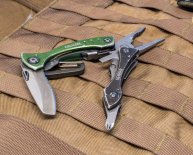
Colt Defense stock
 A series of miscues and seeming benign neglect by its private equity owners led Colt Defense to file for bankruptcy. Image: Colt Defense.
A series of miscues and seeming benign neglect by its private equity owners led Colt Defense to file for bankruptcy. Image: Colt Defense.
It should have been as easy as selling umbrellas in a rainstorm. From the run-up to the 2008 elections to the revelation last week that the Justice Department is prepping more than a dozen new gun-related regulations, firearms enthusiasts have feared President Barack Obama would launch a massive assault on the right to keep and bear arms.
While there has actually been little legislative or regulatory action at the national level, the gun industry has enjoyed one of its biggest boom times in history because of the threat. There has been a record number of background checks on people wanting to buy guns, and sales of firearms having been running at a breakneck pace. At one point demand was so hot that Sturm, Ruger stopped taking orders because its backlog was filled to overflowing.
The "Obama boom" was real, and earned the president the moniker of greatest gun salesman in history. Data: FBI; chart by author.
Yet despite the intensity of demand, one gun manufacturer couldn't seem to make any money. Colt Defense, one of the most famous and storied names in the industry, has filed for bankruptcy.
The clock runs out
Over the weekend the gunmaker filed for Chapter 11 protection, securing $20 million from existing lenders so as to keep operating through the restructuring. It should remain a going concern when it finally emerges on the other side.
How Colt ended up bankrupt during a period of accelerated industry growth is a cautionary tale for others. While it has faced financial troubles for most of its existence, Colt's current problems lie in its reliance upon government contracts for sustenance; ignoring the consumer market until it was too late; and being owned by private equity interests with a knack more for financial engineering than gunsmithing.
 Colt had been the sole manufacturer of military M4 carbines and M16 rifles for decades, but lost out to rivals Remington and FN Herstal, the manufacturer of Winchester and Browning firearms, succeeded it.
Colt had been the sole manufacturer of military M4 carbines and M16 rifles for decades, but lost out to rivals Remington and FN Herstal, the manufacturer of Winchester and Browning firearms, succeeded it.
When the contracts expired in 2013, its financial woes mounted, and late last year Colt had to scurry to raise money to keep going. It warned it might not be able to make bond payments that were coming due, and by May Colt was . It scrambled to get its backers on board with its turnaround plan, but bondholders wouldn't accept the 70% haircut the gunmaker was asking for; now it is seeking the protection of bankruptcy courts.
Independent alternative investment management firm Sciens Capital Management, which is serving as a "stalking horse" bidder for the company's assets, owns Colt. A stalking horse bid is the first bidder with whom the company negotiates a purchase agreement, and it sets the floor for subsequent offers. Although Colt says it will accept other offers, Sciens anticipates it will acquire all of Colt's assets.
The M4 Carbine was one of Colt Defense's military mainstays, but rivals unseated the gunmaker. Image: Colt Defense.
Shooting itself in the foot
While its military contracts were Colt's primary revenue stream, that was because it often misread sentiment in the consumer market. It might have irreparably harmed its image in the eyes of gun owners when it backed research into early iterations of so-called ) soon adopted. Colt largely ignored it.
Sales last year fell 30%, and it had about $11 million cash in the bank last month with no capacity to borrow more. Colt is looking for the auction for its business to be completed by Aug. 3 because it says it can't afford a lengthy proceeding. Sciens currently owns 87% of the gunmaker.
Sighting in on a takeover
Another manufacturer might step in to bid on Colt, though it seems doubtful Smith & Wesson or Ruger would do so. A foreign company such as Sig Sauer or Herstal might have the wherewithal to do so, though if it were the latter it would be somewhat ironic since Colt had tried to buy the gunmaker but was thwarted by the Belgian government's promise to nationalize Herstal to block the acquisition.
Bankruptcy won't be the end for Colt Defense - this is actually the second time it has sought court protection from its creditors, having filed for bankruptcy in 1992. But since the current management team will remain in place, whether the process will produce a better company on the other side seems to be in doubt.


















